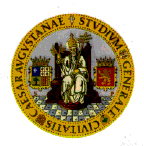
| Performance Models for Discrete Event Systems with Synchronizations:
Formalisms and Analysis Techniques | 
|
|
Index page Aims and Scope Intended Audience Topics Detailed Programme |
Aims and ScopeDiscrete Event Dynamic Systems (DEDS) are based on a view of dynamic systems where discrete states and events play a fundamental role. DEDS are becoming increasingly interesting as the importance of automation and control grows in modern technology. Application domains like manufacturing, transport or telecommunication use extensively concepts and techniques from DEDS. Design optimization, scheduling (performance control), monitoring, implementation (possibly fault-tolerant),... are among the critical issues that require the use of modelling and of qualitative and quantitative analysis techniques. Formal methods for the specification, verification and performance evaluation of DEDS are becoming more and more important as systems increase in size and complexity. The aim of this Advanced School is to present a comprehensive Petri Net-based framework to model and analyze the performance of complex distributed systems in which the interplay of concurrency and cooperation among agents is crucial at the global system level and in which queueing, service, routing, and synchronization (e.g. rendez-vous, capacity constraints,...) are equally important. Other formalisms, like Queueing Networks and Stochastic Process Algebras, will be also considered and discussed from the point of view of their relations with Stochastic Petri Nets. The interleaving of qualitative and quantitative analysis of complex DEDS will be stressed. The most important aspects of net based performance modelling and analysis techniques will be presented to train the participants in the effective use of formal models in existing and possible future application domains. |
|